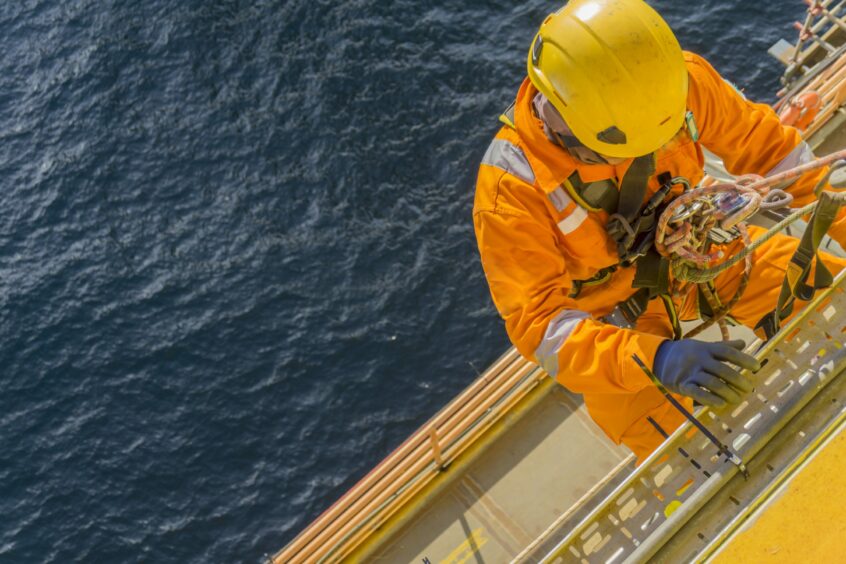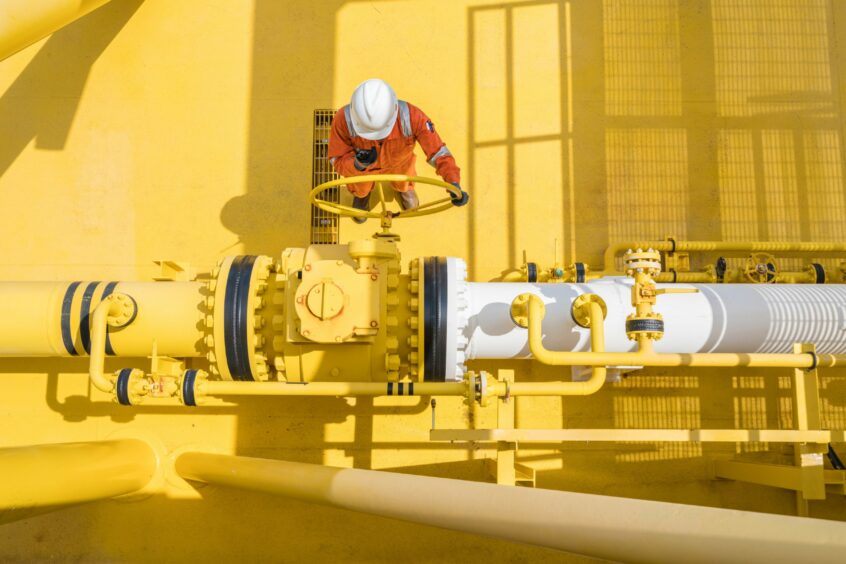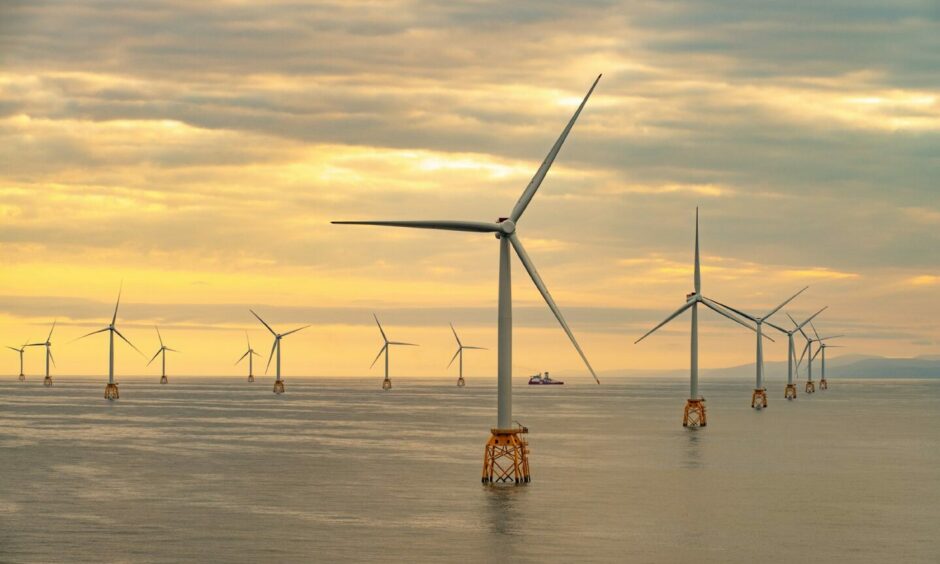Low morale and a “culture of fear” have been highlighted as barriers to the North Sea energy transition by a major new report.
It follows a survey of more than 1,000 offshore workers.
Employees from Aberdeen to Edinburgh and Newcastle took part in the study.
Many were concerned about their prospects in the sector, amid “relentless prioritisation” of companies’ profits.
The likes of Shell and BP are making huge record profits but for the guys down the line it’s just not filtering down.”
Offshore worker Cameron
Two years in the making, the Our Power: Offshore Workers report was compiled by pressure group Platform and Friends of the Earth Scotland. It is backed by two unions, RMT and Unite, and campaign group Uplift to drive key demands for a “just” transition.
The report says renewables cannot be modelled “in the broken image of the oil industry”.
It calls for widespread changes to ensure workers can influence energy policy, claiming workers have been “left in the dark” over transition plans and are unable to see any future in the sector.
It also puts forward a 10-point list of demands from the government.
These include a jobs guarantee, skills “passports”, public ownership of energy assets, a permanent “energy excess profits tax” and sovereign wealth fund.
In addition, the report calls for stronger rights for workers via new protections and collective bargaining agreements.
Oil sector ‘hell bent’ on cutting costs
One of its major claims is the UK has not planned for a “managed phase-out of oil and gas”, with the industry left to decide the “pace and structure” of the energy transition.
It also alleges existing plans do not involve workers and will “further dismantle” their terms and conditions.
I don’t see how they can be paying people less in 2022 than in 2014. It’s obscene.”
In one testimonial, 53-year-old deck crew member Matt – not his real name – says that even with high commodity prices, conditions are worsening in the offshore sector.
Oil and gas companies are “hell bent on cutting”, despite “horrendous profits”, he adds.
Recent months have been “the worst I’ve ever seen in my 32 years working in the industry”, he says.
Another worker, Cameron – a 31-year-old data engineer from Aberdeenshire – says the system is “in the toilet.”
He adds: “The likes of Shell and BP are making huge record profits but for the guys down the line it’s just not filtering down. It feels like corruption of the highest order.
“I don’t see how they can be paying people less in 2022 than in 2014. It’s obscene.”
Whistleblowing policies, or in many cases a lack of them, also come under scrutiny.
One offshore worker alleges “blacklisting” is used to deal with those who raise concerns.
Windfall tax woe
According to industry body Offshore Energy UK (OEUK), the UK Government’s windfall tax has led to more than 90% of North Sea producers slashing their spending.
Responding to the report, OEUK sustainability and policy director Mike Tholen said: “Our companies have paid nearly £400 billion in production taxes alone since North Sea production started.
“We support vital jobs for hundreds of thousands of people in communities like Aberdeen, Teesside, and the north-west and east of England.”
Over 90% of North Sea producers have cut spending due to the windfall tax says @OEUK_
"Those are real people that are losing their jobs, that is hundreds of jobs being lost,” says new CEO David Whitehouse on @EnergyVoiceNewshttps://t.co/zZRD6ZCqQU— Allister Thomas (@AllisterMThomas) February 27, 2023
The North Sea Transition Deal agreed with the UK Government will also see up to 40,000 jobs secured in low carbon sectors, Mr Tholen said.
He added: “The sector will invest up to £14-16bn in new energy technologies by 2030, and more widely, substantially more will be invested into renewables by the same year.
“This industry will continue to be a major contributor to the UK for many years.”
A UK Government spokesperson said: “Plans to help decarbonise the oil and gas sector are entirely just – and we would strongly refute any claim otherwise.
“The North Sea is a key part of increasing our energy security and independence, with our transition deal helping towards a low-carbon future, while supporting tens of thousands of jobs.”
Up to £2bn funding required
The Scottish Government has a £500 million Just Transition Fund, of which around 10% has been spent to date, largely in the north-east.
But the report calls the amount “insufficient” in comparison with other regional transition funding programmes, and said £1-2bn should be allocated – the majority in Scotland – if the UK is to achieve a similar scale to programmes in the European Union.
Explaining why a smooth transition is vital, Oliver, a 42-year-old engineer from Aberdeenshire, says: You would think Aberdeen would be in better shape with the oil and gas revenue that has been generated over the past 50 years. Looking around the city, that hasn’t been the case.”
Without a managed plan for transition, Oliver fears a “collapse” of employment and the local economy. “The Scottish Government needs to make sure the north-east doesn’t become a ghost town,” he adds.





Conversation